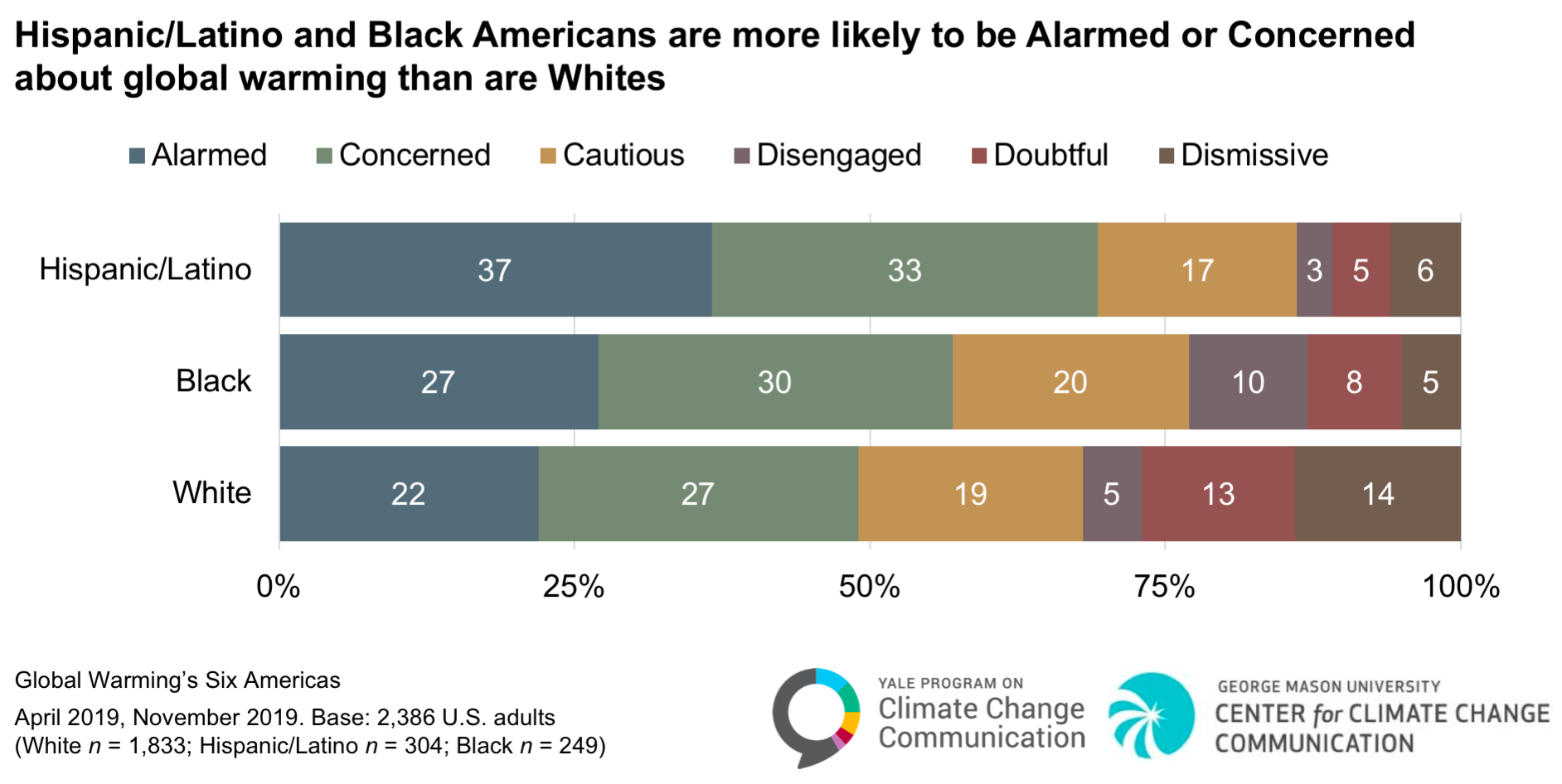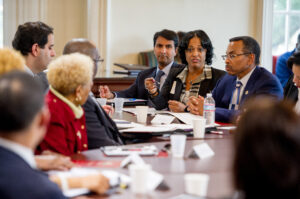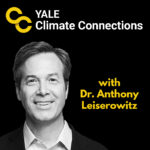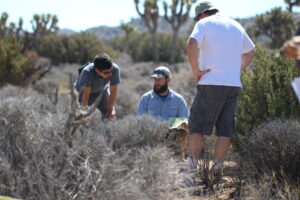Blog · April 14, 2022
Act on Climate Change
There are many practical actions individuals can take to address climate change. Here are some resources that can help you get started.
1. Learn more and stay informed:
Climate Change Communication
- Join the YPCCC Mailing List to get the latest breaking research on public opinion and behavior.
- Subscribe to Climate Connections, a daily public radio series, to hear stories about how climate change is impacting our lives and how people are developing constructive solutions (produced by Yale Climate Connections).
- Climate Access is an international network supporting the community of climate change communicators, including recent research, tips, and “what works.”
- Read Talking Climate: a New Guide to More Effective Communication, created by the Center for Research on Environmental Decisions (CRED) at Columbia University and ecoAmerica.
- Sign up for Climate Nexus’s daily “Hot News” email at the bottom of their homepage.
- Check out unique artwork inspired by climate change, at Artists & Climate Change.
Climate Science
- The Union of Concerned Scientists (UCS) provides a basic overview of global warming, its causes, and its impacts.
- Explore the history of Earth’s climate, view real-time satellites datasets in 3D, check out the Sea Level and Global Ice Viewers, and more on NASA’s interactive climate site.
- Skeptical Science provides answers to common myths and misunderstandings about climate change.
- RealClimate offers expert commentary on climate science for the interested public and journalists.
- GlobalChange.gov is a clearinghouse for all climate change research by the U.S. Government.
- The United Nations Intergovernmental Panel on Climate Change (IPCC) organizes thousands of climate experts worldwide to report on the latest scientific understanding of the causes, consequences and solutions to climate change.
Connections between Climate Change and Racism
- The New York Times outlines articles, essays, and books that speak to the overlap between environmental degradation and racism.
- The National Black Environmental Justice Network is dedicated to improving the lives of Black people and addressing the systemic racism that harms and denies Black People equal access to environmental, climate, racial and economic justice, health equity, political power, civil rights and human rights.
- Robert Bullard, the “Father of Environmental Justice,” provides an environmental justice resource list.
- Columbia Law School’s Sabin Center for Climate Change Law lists articles, podcasts, and law-related publications that explain the relationship between racial justice and climate change.
2. Reduce your carbon emissions:
- The U.S. Environmental Protection Agency (EPA) has a plethora of climate change resources, including a tool to calculate your carbon footprint and provides personalized suggestions for reducing your emissions.
- The David Suzuki Foundation provides additional suggestions on how to cut your own emissions.
- The Find Green-e Certified tool helps you find and buy electricity produced by renewable energy sources.
- The Database for State Incentive for Renewables & Efficiency (DSIRE) directs you to local programs and financial incentives to buy or install green power or improve the efficiency of your home.
- The UN’s Lazy Person’s Guide for Saving the World and Year of Living Sustainably provide tips about how you can reduce your carbon footprint.
- Katharine Hayhoe, a climate scientist and host of “Global Weirding,” a climate and science video series, shares tips on how one person can take action to make a difference:
- Purchase carbon offsets for your personal emissions. Companies like Cool Effect and Green-e can help you identify and purchase carbon offsets. Organizations that sell carbon offsets are evaluated and authenticated by third-party verification groups. When evaluating and purchasing carbon offsets, check to see how the offsets are verified. The Stockholm Environment Institute and Greenhouse Gas Management Institute provide more information, including a list of verification bodies, here.
3. Become a citizen climate scientist:
As a citizen, you can join current research projects and make crucial contributions to the body of knowledge on climate change.
- Volunteer with Earth Watch to work with climate scientists.
- The Cornell University Lab of Ornithology C3 Project helps people get involved as “citizen scientists” documenting and understanding the local impacts of climate change.
- Record your bird sightings and track migratory birds as a National Audubon Society Citizen Scientist.
- Track when leaves grow and flowers bloom in the spring with the National Phenology Network.
- Record the hatching and migration of monarch butterflies with the USDA Forest Service.
- Collect information on coral reefs and reef fish with REEF.
4. Take political action:
One of the most important things you can do is write (by regular mail) or call your local, state or federal representative.
- Contact your elected officials. Visit Project Vote Smart, where you can type in your address and instantly find your federal and state representatives, their voting records, issue positions, ratings, and campaign finance information.
- The League of Conservation Voters aggregates voting records of US Senators and Representatives into the National Environmental Scorecard.
- The Union of Concerned Scientists (UCS) Action Center provides tools and information to take a variety of political actions online and offline.
- Citizens Climate Lobby arms citizens with the information, skills and opportunities to lobby Congress, state and local officials, and other leaders.
- 350.org connects activists and organizes climate actions, big and small, around the world.
5. Use our resources:
YPCCC offers research and information, and provides capacity building support for organizations within the climate movement.
- Explore our fact sheets and Climate Opinion Maps to see how climate opinion varies by geography.
- Take advantage of our Six Americas Super Short Survey to better understand your climate views, and others’.
- Improve your understanding of national public opinion over time by reviewing our Climate Change in the American Mind studies.
- In our Partnership Program, YPCCC helps organizations clarify their communication goals, identify and understand their audiences, use our tools, and conduct their own studies. Consider partnering with us to improve your organization’s climate communication strategy.
Note: The postings above are provided as informational resources and do not indicate endorsement by The Yale Program on Climate Change Communication

